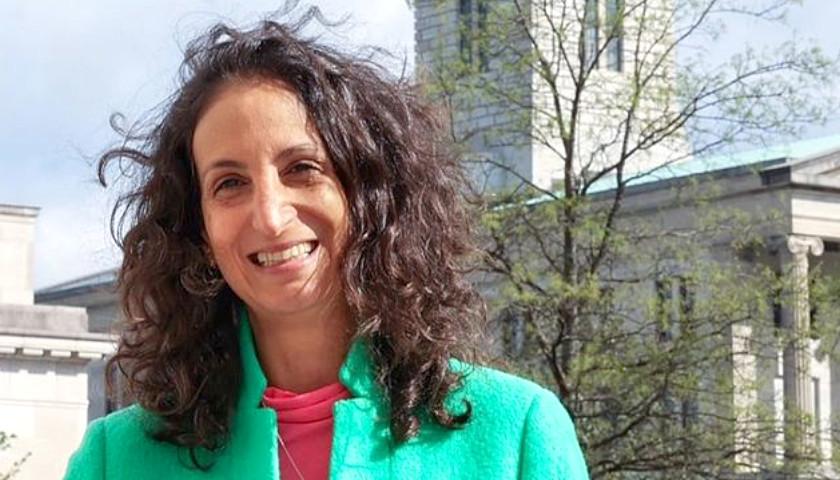Live from Music Row Tuesday morning on The Tennessee Star Report with Michael Patrick Leahy – broadcast on Nashville’s Talk Radio 98.3 and 1510 WLAC weekdays from 5:00 a.m. to 8:00 a.m. – host Leahy welcomed Tennessee State Senator Kerry Roberts (R-Springfield) to the newsmaker line to comment upon the quick passage of SB2616 proposed by State Senator Frank Niceley (R-Rutledge) requiring Tennessee House and Senate candidates a three-year residency prerequisite to run for either office.
Leahy: We welcome to the newsmaker line, Senator Kerry Roberts.
Ogles: Senator, this is Mayor Ogles. How are you?
Roberts: Hey, I’m doing great, Mayor. How are you today?
Leahy: We are going to shift gears.
Roberts: I didn’t mean to throw you off your game.
Leahy: We are not thrown off our game. We are delighted to hear from you, our good friend, Kerry Roberts. This is what live radio is about.
Roberts: Always exciting. Yesterday, of course, the big news yesterday, Kerry Roberts – (Laughter) State Senator. Wow! This residency bill sailed through the Senate on a 31 to 1 vote.
Roberts: Well, you know what? It was pretty much a non-event. I was expecting a long, drawn-out discussion on what was and was not constitutional. And it just seemed like in a blink of an eye it was over. And there you go.
Leahy: 31 to 1. I mean, Todd Gardner was the only one who opposed it. Bipartisan support.
Roberts: Yes. It really surprised me. I will tell you, I wasn’t exactly sure what I expected, but I didn’t expect that. (Chuckles)
Leahy: Why did it pass on 31 to 1?
Roberts: They got out of the thing of whether somebody could or could not run in the general election and focused on a primary. And I think that the primary races are the domain of the states, so to speak.
The constitutional questions have focused on whether or not you can restrict someone’s ability to run for Congress. And there’s not anything in this bill that keeps someone from running as an Independent. It just says that if you’re going to run in a primary, you have to meet residency requirements.
Leahy: Back to the residency requirements. It’s three years in order to qualify. So in that case, and it would be effective immediately in this year. The date to qualify for the primaries is April 7th.
Working three years backwards, you’d have to be a resident of the state prior to April 7th, 2019. That’s my understanding. Is that your understanding of it?
Roberts: That is my understanding. So they’re going to look at how residency is established. Residency can be a little bit tricky because residency doesn’t just get established, because there’s a process to moving and establishing residency.
And I’m not the legal expert on what constitutes residency, but I think generally we look at things like when you actually took possession of property, and you put utilities in your name, you got a driver’s license, you enrolled your kids in school, and all these kinds of things.
I don’t know that the standard of evidence here is a preponderance of evidence. But I think for most people, it’s been treated like, well, we know it when we see it.
Leahy: Driver’s license and … and it’s the Secretary of State who makes that determination. And we’ve looked at it, and you’re exactly right. It’s the combination of, do you have a driver’s license? What are your stated intentions? What have you publicly said?
Have you said you’re a full-time resident of the state? Have you said you’re not a full-time resident of the state? This is, I think, part of the legislative intent. Is that right?
Roberts: That’s right. You’ve got to let go of the old. Let go of the old. So I’ll give you an example. In 2006, we moved to Robertson County, and we bought a house up here. And the original intent was that it would be a weekend place, and we continue to live in Brentwood, Williamson County area.
So sometimes people do that. They have one house, they’re going back and forth living in another. Now, in our case, we made the decision pretty quickly. We’re going to move up here and stay up here because we loved it. We loved the house that we bought, and the property.
And so sometimes there’s a very clear cutoff. I get a job, I sell my house, I move. Sometimes [it’s] I think I’d like to do this. I’m not quite sure. And so I’m going to tiptoe into it. So it’s not always very easy to define. Sometimes you kind of have to look at a variety of factors.
Leahy: Andy Ogles has a question for you. Mayor of Maury County.
Ogles: Senator, you made a great point at the beginning of your comments that the purview of the primaries is the domain of the states. And so this question of “is it constitutional?” is yes, because it does not bar someone from running in the general election.
So as Frank Niceley said on the floor yesterday, you could be a member of the Bull Moose Party and run in November. And whether or not your party qualifies to be the third party on the ballot has more to do with state rules.
And so if you look at the Louisiana case, which is often cited by those people that are trying to kill this bill, what’s interesting in that situation is the courts noted they struck down the rule in Louisiana, but they stated the reason being is that Louisiana did not truly have a two-party system, whereas in Tennessee we do.
So it passes that test of, yes, we actually do have primaries in Tennessee. We have candidates on both sides of the aisle. And so, again, this is clearly the purview of the states. And I commend the state Senate for defending our right to manage our elections. This becomes a 10th Amendment issue.
Roberts: And I’m going to tell you something crazy. In 2010, and both of you know this, but your listeners may not: I ran for Congress. I’ll say it this way. I was a popular candidate on the stump, on the trail, at the forums, and all the things that we spoke at.
But I got beat like a drum on Election Day because I didn’t have the money. And it’s great that you go speak at all these Reagan Day dinners and you get the crowd riled up. But if you don’t have the ability to reach the voter at large, then you’re not going to do very well.
I got beat like a drum. I finished five out of six, but I caught the attention of some people, and a sitting member of Congress, no kidding, came to me and said, we need you in Congress and we need to find a place for you to run.
And I said, what do you mean? And he said, well, you don’t have to be a resident of a district to run. He said, we can look around the country and we can find some open seats or vulnerable seats or whatever, and we can get behind you to run in that seat and we can get you in Congress.
I couldn’t even process that. I couldn’t wrap my mind around the idea that we would actually sit here and run for a place that we’re not from. That was just stunning to me. That’s the attitude a lot of people have, and I’m glad that we did this.
Ogles: You have national parties, like you say. I mean, your own testimony. They’re shopping districts looking for opportunities. So think about it. You’ve got a presidential cycle coming up on the horizon in a few years and the 5th district is probably plus-15.
And so what if the Democrats, hypothetically, if you’re Republican, find a celebrity Democrat, drop them into Tennessee, and say, hey, with the voter turnout, with your celebrity, we can steal this from the people of Tennessee. That’s what’s at stake here.
And again, your own testimony is to the fact that they’re doing this. And I’m sure Morgan is a nice person. I have nothing against her personally, but we have someone that’s been literally parachuted into Tennessee to take our seat.
Leahy: I was going to say, you know what? This sounds like what they’re trying to do, and I have to say it’s President Trump’s trying to do this, and Secretary of State Mike Pompeo.
They’re trying to convert the American system of electing local people to the House of Representatives to a British parliamentary system where you would just have wealthy people who would go and pick districts to represent and run. That’s an English system. It’s not an American system. Your thoughts, Kerry.
Roberts: I guess I failed that test because I’m not a wealthy Englishman. (Laughter)
Leahy: All right. Kerry Roberts, State Senator. Thanks so much for joining us. We really appreciate it.
Roberts: I enjoyed it. Have a good day.
– – –
Tune in weekdays from 5:00 – 8:00 a.m. to the Tennessee Star Report with Michael Patrick Leahy on Talk Radio 98.3 FM WLAC 1510. Listen online at iHeart Radio.









Kerry Roberts. He once represented me. How I wish or a return to those days.
So basically, bill passes with a 30-1 vote, Governor still has to sign it, and no one knows the requirements that must be met to establish residency? I hope this all gets fleshed out, correctly, with no loopholes, before November.